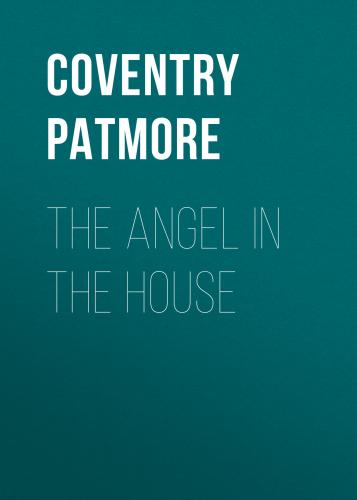The same dull task, the weary way,
The weakness pardon’d o’er and o’er,
‘The thwarted thirst, too faintly felt,
For joy’s well-nigh forgotten life,
The restless heart, which, when I knelt,
Made of my worship barren strife.
‘Ah, whence to-day’s so sweet release,
This clearance light of all my care,
This conscience free, this fertile peace,
These softly folded wings of prayer,
‘This calm and more than conquering love,
With which nought evil dares to cope,
This joy that lifts no glance above,
For faith too sure, too sweet for hope?
‘O, happy time, too happy change,
It will not live, though fondly nurst!
Full soon the sun will seem as strange
As now the cloud which seems dispersed.’
She from a rose-tree shook the blight;
And well she knew that I knew well
Her grace with silence to requite;
And, answering now the luncheon bell,
I laugh’d at Mildred’s laugh, which made
All melancholy wrong, its mood
Such sweet self-confidence display’d,
So glad a sense of present good.
I laugh’d and sigh’d: for I confess
I never went to Ball, or Fête,
Or Show, but in pursuit express
Of my predestinated mate;
And thus to me, who had in sight
The happy chance upon the cards,
Each beauty blossom’d in the light
Of tender personal regards;
And, in the records of my breast,
Red-letter’d, eminently fair,
Stood sixteen, who, beyond the rest,
By turns till then had been my care:
At Berlin three, one at St. Cloud,
At Chatteris, near Cambridge, one,
At Ely four, in London two,
Two at Bowness, in Paris none,
And, last and best, in Sarum three;
But dearest of the whole fair troop,
In judgment of the moment, she
Whose daisy eyes had learn’d to droop.
Her very faults my fancy fired;
My loving will, so thwarted, grew;
And, bent on worship, I admired
Whate’er she was, with partial view.
And yet when, as to-day, her smile
Was prettiest, I could not but note
Honoria, less admired the while,
Was lovelier, though from love remote.
CANTO III
Honoria
PRELUDES
He meets, by heavenly chance express,
The destined maid; some hidden hand
Unveils to him that loveliness
Which others cannot understand.
His merits in her presence grow,
To match the promise in her eyes,
And round her happy footsteps blow
The authentic airs of Paradise.
For joy of her he cannot sleep;
Her beauty haunts him all the night;
It melts his heart, it makes him weep
For wonder, worship, and delight.
O, paradox of love, he longs,
Most humble when he most aspires,
To suffer scorn and cruel wrongs
From her he honours and desires.
Her graces make him rich, and ask
No guerdon; this imperial style
Affronts him; he disdains to bask,
The pensioner of her priceless smile.
He prays for some hard thing to do,
Some work of fame and labour immense,
To stretch the languid bulk and thew
Of love’s fresh-born magnipotence.
No smallest boon were bought too dear,
Though barter’d for his love-sick life;
Yet trusts he, with undaunted cheer,
To vanquish heaven, and call her Wife
He notes how queens of sweetness still
Neglect their crowns, and stoop to mate;
How, self-consign’d with lavish will,
They ask but love proportionate;
How swift pursuit by small degrees,
Love’s tactic, works like miracle;
How valour, clothed in courtesies,
Brings down the haughtiest citadel;
And therefore, though he merits not
To kiss the braid upon her skirt,
His hope, discouraged ne’er a jot,
Out-soars all possible desert.
Strong passions mean weak will, and he
Who truly knows the strength and bliss
Which are in love, will own with me
No passion but a virtue ’tis.
Few hear my word; it soars above
The subtlest senses of the swarm
Of wretched things which know not love,
Their Psyche still a wingless worm.
Ice-cold seems heaven’s noble glow
To spirits whose vital heat is hell;
And to corrupt hearts even so
The songs I sing, the tale I tell.
These cannot see the robes of white
In which I sing of love. Alack,
But darkness shows in heavenly light,
Though whiteness, in the dark, is black!
You love? That’s high as you shall go;
For ’tis as true as Gospel text,
Not noble then is never so,
Either in this world or the next.
HONORIA
Grown
